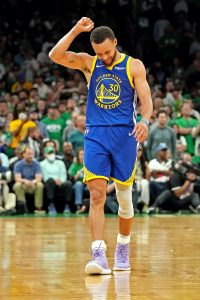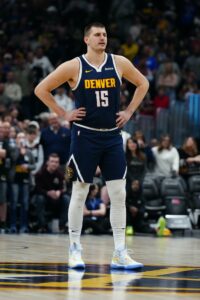As of Friday evening, 52 of the NBA’s 60 two-way contract slots are filled. Given how flexible those two-way slots are, it’s possible – and, in fact, very likely – that not all 52 of those players will still be under contract when the regular season begins in a month. But for now, there are just eight two-way spots up for grabs around the league.
[RELATED: 2022/23 NBA Two-Way Contract Tracker]
A team with a two-way opening doesn’t necessarily need to decide how it will fill that spot before training camps begin in 10 days. Some of those clubs may decide to bring a handful of players to camp on Exhibit 10 contracts and then let those players compete for a two-way deal, since Exhibit 10s can be converted into two-ways before opening night.
Listed below are the eight teams that still have open two-way slots, along with some potential candidates to fill those openings.
Charlotte Hornets
With second-round pick Bryce McGowens occupying one two-way slot, the Hornets have no obvious candidate to fill the other, so it’s possible the team will hold a preseason competition. Currently, Jalen Crutcher, Jaylen Sims, Anthony Duruji, and Isaiah Whaley are signed to Exhibit 10 contracts, and all are eligible to have those contracts converted into two-way deals.
Dallas Mavericks
With their first two-way slot, the Mavericks signed Tyler Dorsey, who has high-level international experience and could earn a rotation role in Dallas this season. We’ll see if the team wants to use its second slot on another player who could contribute right away or if that spot will go to someone who is more of a developmental project.
McKinley Wright IV, Mouhamadou Gueye, and Tyler Hall are signed to Exhibit 10 deals and Marcus Bingham will reportedly receive one as well. All could be two-way candidates.
Houston Rockets
Bruno Fernando is the only Rocket who currently has an Exhibit 10 contract, and he remains eligible for a two-way deal. However, Houston has some roster cutdowns to make, which could open up opportunities for other camp invitees to emerge as two-way contenders. For now, undrafted rookie Trevor Hudgins is the club’s lone two-way player.
Indiana Pacers
The Pacers were the last team to sign a player to a two-way contract this offseason, completing a deal with Kendall Brown on Friday. With Brown holding one two-way slot, the other remains open.
Deividas Sirvydis, Gabe York, Bennie Boatwright, and David Stockton are the two-way candidates currently on the roster, but the team has also reportedly agreed to Exhibit 10 contracts with Tevin Brown, Eli Brooks, Fanbo Zeng, and Jermaine Samuels, so there will be no shortage of options.
Los Angeles Clippers
Moses Brown, who has 92 career regular season appearances under his belt and could provide much-needed frontcourt depth, is the most intriguing two-way candidate on the roster at the moment, but he’s hardly the only one. Like Brown, Xavier Moon and Keaton Wallace also have Exhibit 10 deals, while Justin Bean, Lucas Williamson, and Michael Devoe will reportedly receive them too.
For the time being, second-rounder Moussa Diabate is Los Angeles’ only two-way player.
Portland Trail Blazers
Given that the Trail Blazers don’t have a G League affiliate, it’s hard to see why they’d sign four players to Exhibit 10 contracts unless they want to have the option to convert one or more into a two-way deal. None of those four players – Jared Rhoden, Isaiah Miller, Devontae Cacok, and Olivier Sarr – has more than three years of NBA experience, meaning all of them are two-way eligible.
Portland’s lone current two-way player, Brandon Williams, is a holdover from last season, so his roster spot may not be as secure as a player who has signed a two-way deal since the offseason began.
Utah Jazz
Like Williams in Portland, Xavier Sneed was in the second year of his two-way contract before he was waived on Friday. The move leaves Johnny Juzang as the only two-way player on the Jazz’s roster.
Utah has a roster logjam to clear and could still make a trade or two before the regular season begins, so it’s too soon to name an obvious candidate to take Sneed’s spot. However, the team has reportedly agreed to sign Kofi Cockburn, Darryl Morsell, and Jeenathan Williams to Exhibit 10 contracts.
Washington Wizards
Jordan Schakel is in the second year of his two-way deal, so he may have to prove this preseason that he deserves to make the 17-man roster. Makur Maker, Quenton Jackson, Davion Mintz, and Jordan Goodwin are all on Exhibit 10 contracts in D.C. and could be in the two-way mix. Second-rounder Yannick Nzosa is also unsigned, but is expected to spend the 2022/23 season in the Spanish League.
 The Designated Veteran rule allows a player with between seven and nine years of NBA experience – who would normally qualify for a starting salary worth 30% of the NBA’s salary cap on a new free agent contract or extension – to become eligible for a salary worth up to 35% of the cap if he meets one of the following requirements:
The Designated Veteran rule allows a player with between seven and nine years of NBA experience – who would normally qualify for a starting salary worth 30% of the NBA’s salary cap on a new free agent contract or extension – to become eligible for a salary worth up to 35% of the cap if he meets one of the following requirements:
